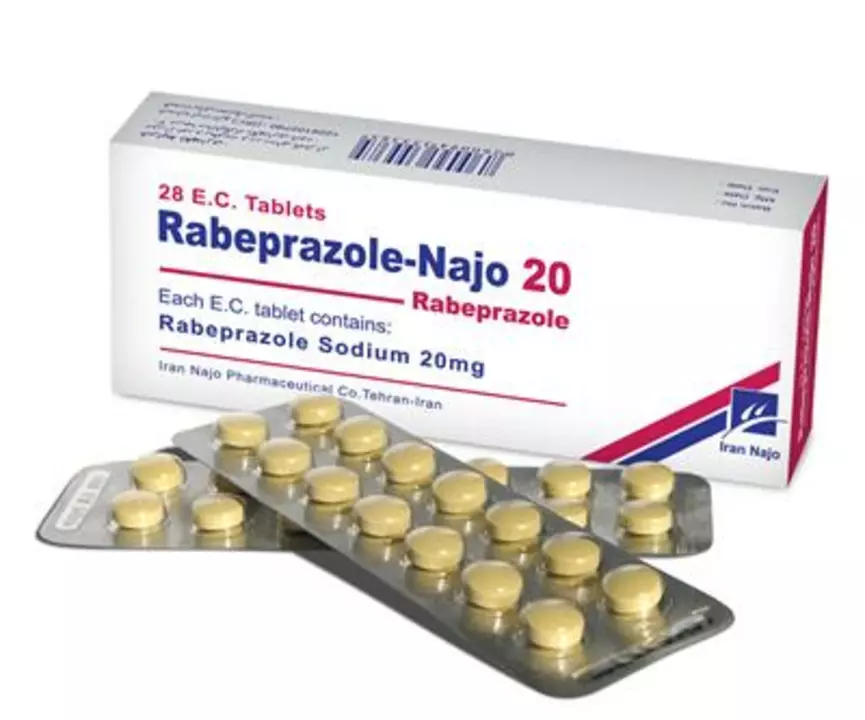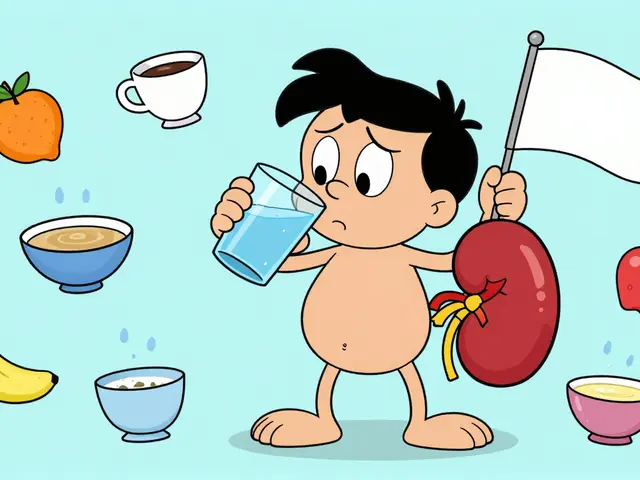Stress-Related Gastritis: What It Is and How to Calm Your Stomach
If you've ever felt a burning ache after a hectic day, you might be dealing with stress‑related gastritis. It's basically inflammation of the stomach lining that gets worse when your mind is under pressure. The good news? Small changes in daily habits can shrink the pain and keep your gut happy.
Why Stress Messes With Your Stomach
When you're stressed, your body releases cortisol and adrenaline. Those hormones speed up acid production, relax the lower esophageal sphincter, and slow digestion. The result is a perfect storm for the stomach lining: more acid, less protection, and irritation that feels like a dull ache or sharp burning.
Typical signs include:
- Gnawing pain in the upper belly
- Nausea or feeling full quickly
- Bloating after meals
- Occasional vomiting of blood‑tinged fluid (rare but serious)
If you notice these symptoms popping up during stressful periods, consider them a cue to act.
Practical Ways to Soothe Stress‑Induced Gastritis
1. Tame the caffeine rush. Coffee and energy drinks spike acid. Switch to herbal tea or decaf for a week and see if your pain eases.
2. Eat smaller, frequent meals. Large plates overload the stomach. Aim for five‑to‑six modest portions spread throughout the day.
3. Choose gut‑friendly foods. Oatmeal, bananas, boiled potatoes, and plain yogurt coat the lining and absorb excess acid. Avoid spicy, fried, or highly acidic foods like citrus and tomatoes until you feel better.
4. Hydrate wisely. Sip water throughout the day; don’t gulp large amounts right before bedtime, which can increase reflux risk.
5. Manage stress directly. Simple breathing exercises, a 10‑minute walk, or a quick meditation session lower cortisol levels fast. Consistency matters more than length—five minutes twice daily works for many people.
6. Consider over‑the‑counter help. Antacids or H2 blockers (like ranitidine) can give short‑term relief, but they’re not a fix for chronic stress. Talk to a pharmacist before starting any new meds.
7. Know when to call a doctor. If pain lasts more than two weeks, you notice blood in vomit or stool, or lose weight unintentionally, seek medical advice. A professional may prescribe proton‑pump inhibitors (PPIs) or test for H. pylori infection, which can coexist with stress‑related gastritis.
Putting these tips into practice doesn’t have to be overwhelming. Start by swapping your morning coffee for tea and adding a short breathing break before you check emails. Small wins add up, and soon your stomach will thank you.
Remember, stress is part of life, but it doesn’t have to control your gut health. By understanding the link between mind and stomach and using easy, everyday strategies, you can keep gastritis at bay and enjoy meals without fear.

Rabeprazole Sodium and Stress-Related Gastritis: How It Can Help
As a blogger, I've recently come across the topic of Rabeprazole Sodium and its effectiveness in treating stress-related gastritis. From what I gathered, Rabeprazole Sodium is a proton pump inhibitor that works by reducing the amount of acid produced in the stomach. This helps alleviate the symptoms of gastritis, such as heartburn and stomach pain, which are often triggered by stress. It's fascinating to learn how this medication can make a significant difference in managing stress-related gastritis and improving our overall well-being. I'm eager to share this information with my readers in hopes of raising awareness and helping those who suffer from this condition.





